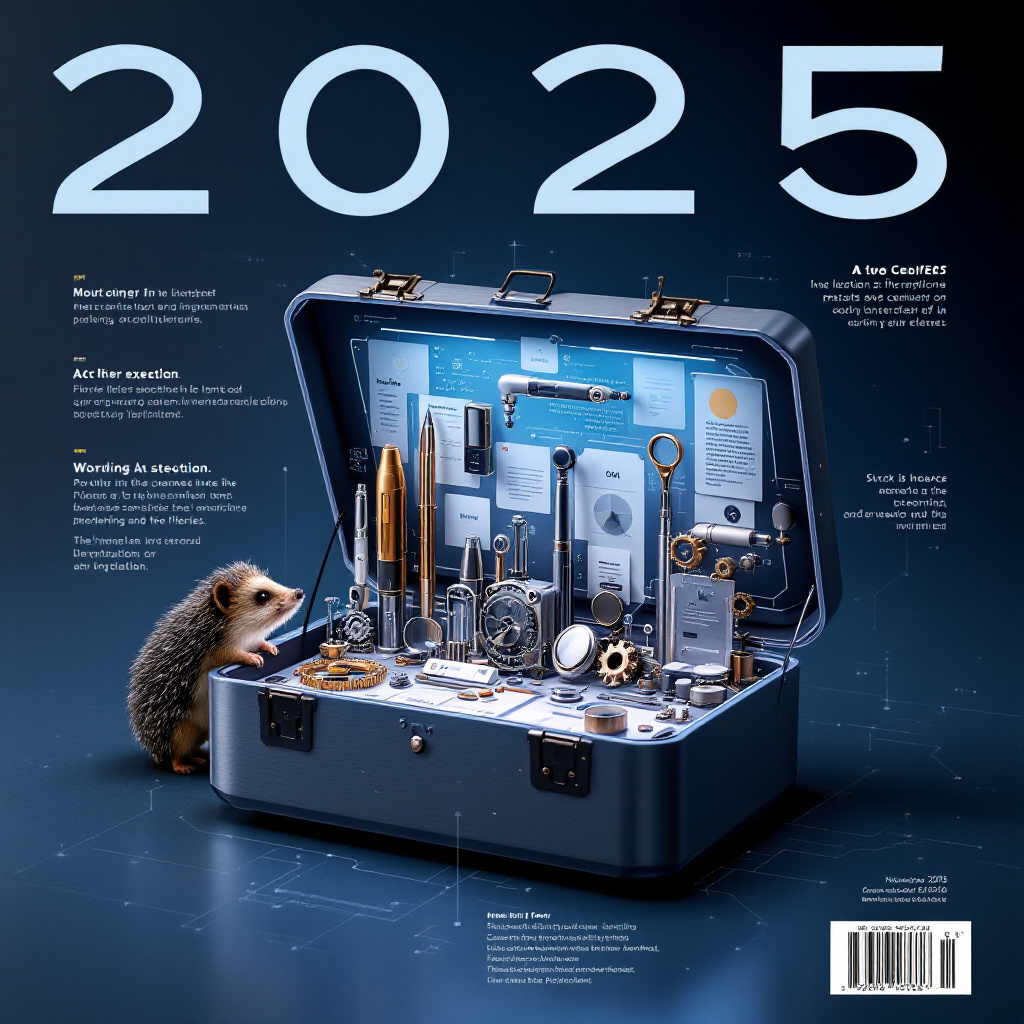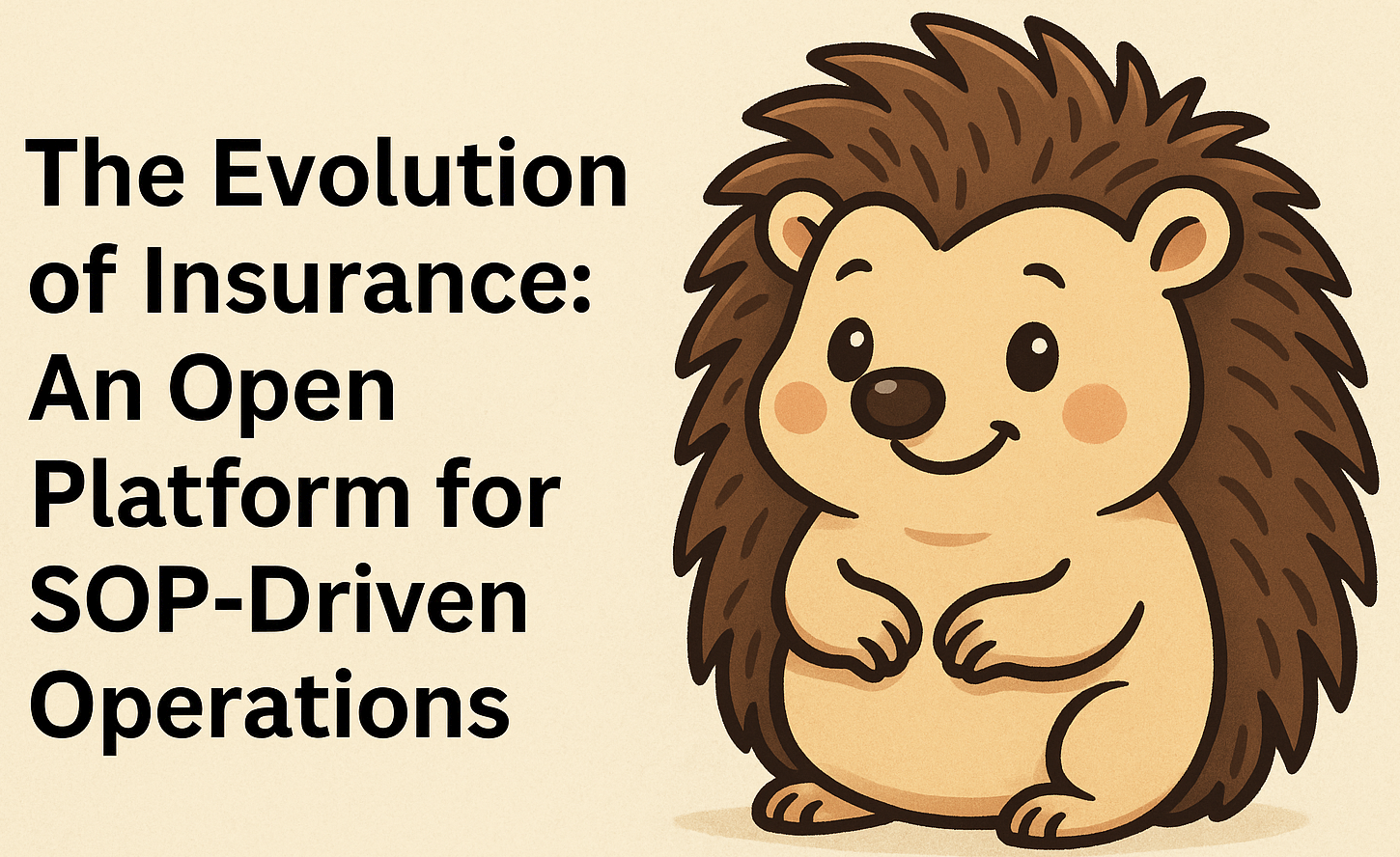2025 - A Generalist view going forward with AI

For almost a decade, I started and than ran a business (ChainThat), it was eight years of building, learning, evolving, and wearing far too many hats to count. Strategy, Marketing, branding, finance, sales, product development, user experience, insurance processes/expertise even some very light coding and DevOps input. I embraced it all, I ejoyed it and had some great co-founders and team members who made it thrive. I have always considered myself a generalist, someone who is not afraid to jump into any function of the business to push it forward and try to get the right outcome. I must say I prided myself on being able to navigate all these domains. Yet as anyone who’s tried it knows that juggling so many roles requires constant research, countless late nights, and a willingness to accept that I might only ever scratch the surface of each skill or domain and make alot of mistakes along the way. I would not change this as this as when I made mistakes, and I made alot of them over 8 years (from stratgey & finance misteps to people and culture issues), but this helped me learn alot.
I am just launching Vision2Delivery but there’s a difference. I’m not alone at the very start. I have AI at my side, specifically, large language models (LLMs) that have started to feel like my own personal instructors, consultants, and creative partners rolled into one. With them, I can amplify what it means to be a generalist. I can dig deeper into each area I’m responsible for without sacrificing speed, and I can do it all without the same level of burnout that comes from trying to be a one-person Swiss Army knife of business functions.
For instance, when I need a new approach for a marketing campaign, I used to spend hours scouring the web for best practices, analyzing competitors’ strategies, and reading countless articles on branding frameworks. Probably procastinating a bit too much. Now, I can have a conversation with an AI assistant, asking pointed questions and getting immediate, useful answers. If something doesn’t make sense, I can prompt the model to explain it differently, to give me more examples, or to break it down step-by-step. This kind of interactive, on-demand and real time expertise is something I never had before, where as previously it took longer and needed more poeple with other skill sets. It now not only speeds up my work but also deepens my understanding. Over time, I’m not just getting things done, I’m getting better at doing them.
The same applies to finance. Let’s say I’m trying to refine my company’s financial model. Before AI, I might have spent half a day looking up formulas/abbreviations, reading financial guides, or emailing my CFO for clarifications. Today, I can ask an LLM to explain certain valuation methods, double-check my assumptions, or suggest ways to forecast revenue more accurately. Not only does this save me time, it helps ensure I truly understand the mechanics behind the numbers. I’m learning as I go, reinforcing my knowledge so I’m better prepared next time I open that spreadsheet to talk numbers.
But it’s not just the technical aspects. Launching a product often means thinking strategically, balancing my long-term vision against short-term constraints, understanding user needs and ensuring the experience is intuitive. I can ask an LLM to help me brainstorm a product roadmap, incorporate user feedback, or design tests for new features. If I’m stuck, unsure why a certain pattern might be better, I can press the model to explain the reasoning behind its suggestions. It’s like having a team of experts available at a moment’s notice, each ready to share insights in a way that increases my own competence.
One of the most surprising benefits is how AI helps with creative thinking. When I’m short on ideas for a social media campaign or a brand narrative, I can spark conversations with the model. Many of the responses need refining, but it’s a powerful starting point that often leads me to better ideas than I might have generated alone. It’s a collaborative process, I am still the decision maker, but I’ve got a sounding board that never tires, does not pull face at my stupid questions on a subject and is always ready to throw new angles into the mix.
Looking back on my first eight years in business, I often felt that being a generalist and the CEO meant I had to do everything myself, with minimal guidance. Now, I can still wear multiple hats, but I have this incredibly adaptive resource that ensures I am never completely in the dark. I can quickly become “conversationally fluent” in almost any area of business. The learning curve is shorter, and the quality of my output is higher.
It is still important to note that I still rely on my own judgment. AI can serve up insights, but it can’t fully understand the nuances of my potential customers, my brand voice, or my long-term vision unless I guide it. I see it as a partner that accelerates my path to informed decisions rather than a crutch that replaces my judgment. Ultimately, I am the one who decides which strategies make sense, which creative assets to run with, and what direction my business takes. The difference is that now, I can reach those decisions more confidently and far more efficiently.
In short, where I once poured countless hours into becoming moderately proficient across many disciplines, I now have a tool that rapidly boosts my understanding and capabilities in real time. This synergy between my human adaptability and AI’s instant, deep knowledge makes me feel like the ultimate version of a generalist: still broad in scope, but also able to quickly drill down when needed, learn faster, and produce better results.
Now thats not to say I won't need a team, but this time I know with anyone I bring onboard that we can go faster and quicker and likley in right direction.
As I plan to start working on Vision2Delivery in 2025 (I have just had 10 month break which highly recomend if you get the opporunity), I’m excited not just about what I’ll achieve, but how I’ll learn so much more. With AI as my ally, I’m turning the concept of a “generalist” into something more powerful, someone who can leverage the wisdom of an entire team of experts, all accessible through a few well-placed prompts. It’s a game-changer for me and I am already seeing the difference it makes every single day.


